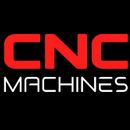The Role of CNC Machines in Custom Manufacturing: Precision, Flexibility, and Innovation

The Role of CNC Machines in Custom Manufacturing
In today's dynamic market, the demand for personalized products and rapid prototyping is growing across various industries. CNC (Computer Numerical Control) machines play a pivotal role in facilitating custom manufacturing, allowing businesses to create tailored solutions efficiently and cost-effectively.
Understanding Custom Manufacturing
Custom manufacturing refers to the production of unique products tailored to specific customer requirements. This approach contrasts with mass production, where identical items are manufactured in large quantities. Custom manufacturing is essential for industries that require flexibility and personalization.
How CNC Machines Enable Custom Manufacturing
1. Precision and Accuracy
CNC machines are renowned for their precision and accuracy, making them ideal for custom manufacturing. The ability to program exact specifications allows manufacturers to produce components that meet exact tolerances.
- Applications: CNC milling, turning, and laser cutting can create intricate shapes and details that meet specific design requirements, from automotive parts to bespoke furniture.
2. Flexibility in Design
One of the most significant advantages of CNC technology is its flexibility. With CNC machines, manufacturers can easily modify designs without extensive retooling.
- Rapid Prototyping: CNC machines enable rapid prototyping, allowing businesses to create prototypes quickly to test and refine designs before full-scale production. This iterative process is invaluable in industries like aerospace, automotive, and consumer products.
3. Material Versatility
CNC machines can work with a wide range of materials, including metals, plastics, wood, and composites. This versatility allows manufacturers to create customized products using the most suitable materials for their applications.
- Custom Applications: CNC routers can carve intricate designs in wood for custom cabinetry, while CNC plasma cutters can create custom metal components for industrial machinery.
4. Efficiency and Speed
CNC technology streamlines the manufacturing process, reducing production time and labor costs. Automated machining processes allow for quick setup and continuous operation, leading to faster turnaround times for custom orders.
- Batch Production: With CNC machines, manufacturers can efficiently produce small batches of customized items without sacrificing quality or speed.
5. Enhanced Consistency and Quality Control
CNC machines ensure that every produced part meets the same specifications, enhancing consistency across custom orders. The repeatability of CNC machining means that manufacturers can achieve uniform quality, critical in custom applications.
- Quality Assurance: Advanced quality control measures can be integrated into CNC operations, allowing for real-time monitoring and adjustments to maintain quality standards.
Industries Benefiting from CNC Technology in Custom Manufacturing
1. Aerospace and Defense
The aerospace and defense industries often require highly specialized components. CNC machining allows for the precise fabrication of parts that meet stringent safety and performance standards.
2. Automotive
The automotive industry utilizes CNC machines to create custom parts and prototypes, from engine components to interior features. The flexibility of CNC technology enables manufacturers to respond quickly to market trends and consumer preferences.
3. Medical Devices
CNC machining is essential in the production of custom medical devices and implants. The ability to create personalized solutions tailored to individual patients' needs enhances the effectiveness of medical treatments.
4. Consumer Products
From custom furniture to personalized gifts, CNC technology allows for unique designs that cater to consumer preferences. Manufacturers can create one-of-a-kind products that stand out in a competitive market.
5. Electronics
In the electronics industry, CNC machining is used to produce custom enclosures, circuit boards, and components. The precision of CNC technology is vital for ensuring the reliability and functionality of electronic devices.
Conclusion
CNC machines play a crucial role in enabling custom manufacturing, allowing businesses to meet the growing demand for personalized products and rapid prototyping. The precision, flexibility, and efficiency of CNC technology empower manufacturers across various industries to create tailored solutions that cater to specific customer needs.
As the landscape of manufacturing continues to evolve, the significance of CNC machines in custom manufacturing will only increase, driving innovation and fostering creativity in product design. Embracing CNC technology positions businesses to thrive in a dynamic marketplace, delivering high-quality, customized products that resonate with consumers.


